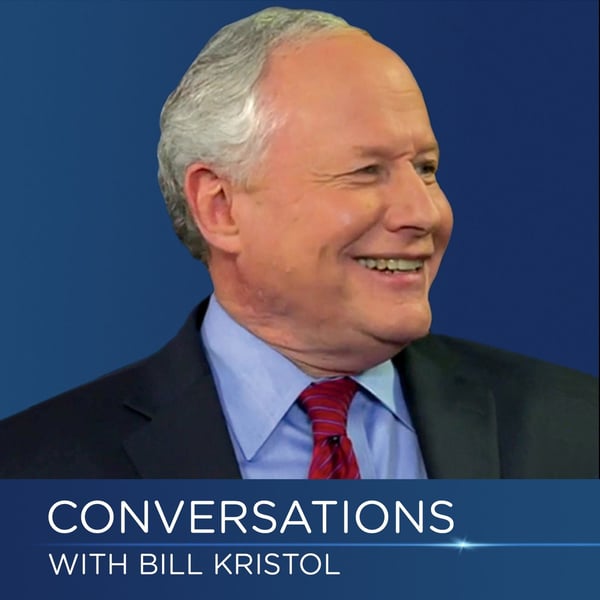Leah Boustan on Immigration: Then and Now
Conversations with Bill Kristol
Conversations with Bill Kristol
4.7 • 1.7K Ratings
🗓️ 31 May 2023
⏱️ 82 minutes
🧾️ Download transcript
Summary
Transcript
Click on a timestamp to play from that location
| 0:00.0 | Hi, I'm Bill Crystal. Welcome back to Conversations. I'm very pleased to be joined today by Leah |
| 0:20.0 | Boostod, Professor of Economics at Princeton, an economic historian. Also done important work in |
| 0:25.8 | labor economics and urban economics, maybe that was before the economic history or they came |
| 0:30.7 | together and they've come together actually in her very important work on immigration, which |
| 0:36.5 | I guess the public face of it as opposed to what's written for fellow economists and in |
| 0:41.3 | economic journals is her co-authored book from last year, very well received, deservedly so |
| 0:47.6 | streets of gold, America's untold story of immigration success. And I would say personally what |
| 0:54.4 | I'm impressed by since I'm always intimidated by economists and therefore I've looked for |
| 0:59.2 | reasons not to read them too much is I'm impressed by Leah's use of social science and history and |
| 1:06.4 | sort of real depth and richness of her use of materials outside of strict economics to supplement her |
| 1:13.8 | economic history of immigration in the US. So Leah, thanks for joining me. |
| 1:19.5 | Thank you so much for having me. And let's get right to it and discuss |
| 1:23.5 | immigration. Maybe just I'll just play devil's advocate here for a while and against those who say |
| 1:30.2 | immigration is a bit a good thing and more importantly is a good thing and more of it would be a good |
| 1:35.1 | thing for the US. And I think a lot of people admit that of course part of the US success, |
| 1:40.2 | America's success over the centuries has been immigration but it's different now. The new |
| 1:44.6 | immigrants and the new waves of immigration are different than the old ones, the country into which |
| 1:49.8 | they're coming is different welfare state identity politics whatever you want. So why don't you |
| 1:54.6 | maybe begin with that and then we'll get into a whole bunch of related topics on immigration today |
| 1:59.2 | and in the past. So in some ways I think that people are right that immigration today is different. |
| 2:10.4 | So as a share of the population 15% of the population around about is foreign born today. |
| 2:19.3 | And the same thing was true 100 years ago. So in that way there's a lot of commonality |
... |
Please login to see the full transcript.
Disclaimer: The podcast and artwork embedded on this page are from Conversations with Bill Kristol, and are the property of its owner and not affiliated with or endorsed by Tapesearch.
Generated transcripts are the property of Conversations with Bill Kristol and are distributed freely under the Fair Use doctrine. Transcripts generated by Tapesearch are not guaranteed to be accurate.
Copyright © Tapesearch 2025.

